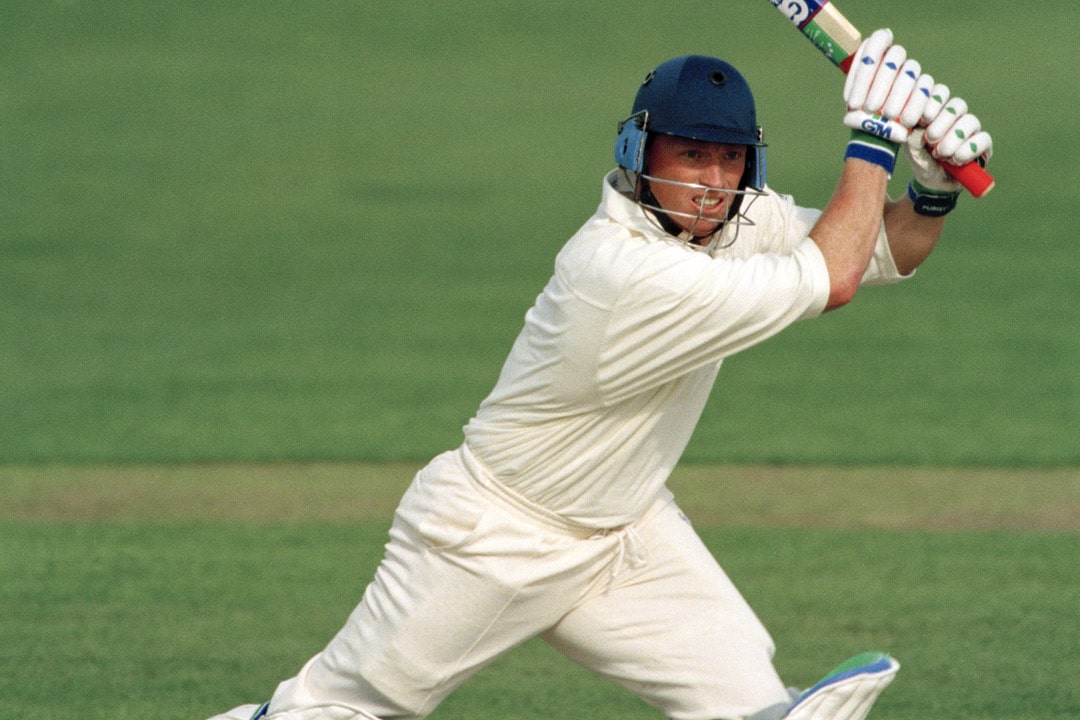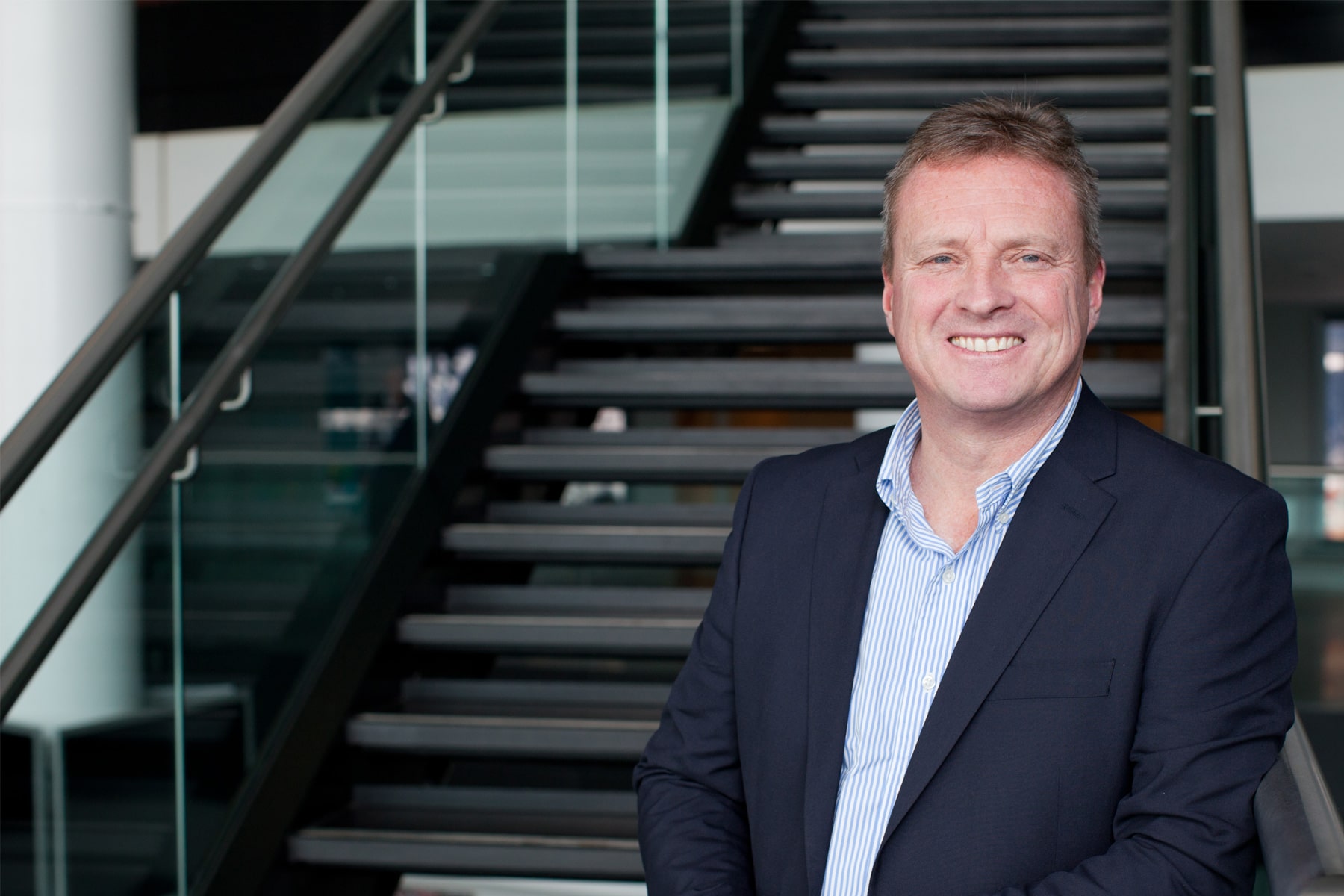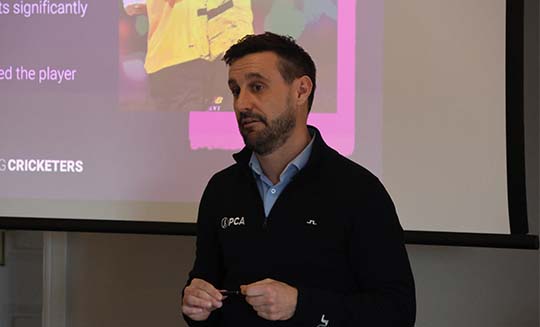PCA PRESS RELEASE
Former Yorkshire batsman explains his role as Chief Executive of a national governing body.
To see more articles. Click here
The Professional Cricketers’ Association recently spoke to ex-Yorkshire batsman Ashley Metcalfe about his experience of life after cricket.
Metcalfe retired in 1997 with 11,938 first-class runs to his name. Since then, he has been involved in the creation and launching of a number of small businesses, and is now the CEO of British Weightlifting – Great Britain’s National Governing Body of the sport.
The 55-year-old explains how skills he picked up during his time as a cricketer have helped him to succeed in business, as well as offering his advice to younger players looking to follow him down a similar path.
- What are the key responsibilities as CEO of British Weight Lifting?
- The role is similar to a CEO position at any small business. I oversee the success and failure of the organisation both operationally and strategically. This includes ensuring the organisation is fully compliant with the code for sports governance and is fit for purpose to receive public funds.Setting of the vision, strategy and operational plans, which then need to be communicated and understood by the whole team is a key role.I am also the accountable officer in the eyes of all key stakeholders and funders, including Sport England and UK Sport. When I took over the role six years ago, there were six people. Now, we are 18-strong with a turnover that has increased fivefold.
- What experiences helped you to reach that position?
- After cricket, I was involved in the creation and launching of a number of small businesses. This experience made me used to the pressure of having to make a commercial success of a venture. It made me more commercially astute and I often think asking yourself “If this was my own money, would I spend it in this way?” is a good question for any business.
- What are the challenges of the role?
- The culture of NGBs is changing. Before, they were well-funded by the government in order to grow participation in sport and develop facilities, but this central support is tapering. There is now a real need for organisations, such as our own, to be fully sustainable and profitable.This is challenging for organisations where the previous focus of employees has been the development of sport. We now need to train our staff to be more commercially aware. You learn that people see change in different ways, for some it is an opportunity and for others it is a threat.

- What expertise did you seek along the way to help you get there?
- A lot of self-teaching, but I’ve also always learned from others. When I retired from cricket, I learned a great deal from the CEOs of the businesses I was involved in. This is a continuation of learning from top coaches in sport as a player. You can even learn from a distance – the key thing is to make sure you listen.
- Winding the clock back to your playing days, when did you start thinking about life after cricket?
- The PCA wasn’t the organisation it is now when I retired. I didn’t start to consider life after cricket until later in my career. When you start out in the game you feel like you’ll play forever but, as you get older, you realise you never know what’s around the corner. In my latter years, I spent my winters working within the commercial department at Yorkshire where I helped shape their structure and gained other commercial experience in a variety of sales and marketing roles.
- What skills and experiences from being a cricketer have helped you in the business world?
- My years as a professional cricketer have been invaluable and provided me with a solid foundation for business. I probably didn’t realise it at the time, since it’s experience away from the game that enables you to reflect.I had more 0s than 100s and this taught me to be pretty level-headed. Sport also gives you a degree of self-confidence to deliver. If you don’t play well, you won’t be selected and therefore you are used to being the master of your own destiny. You get used to learning from your mistakes and adapting quickly to changing circumstances. Cricket also teaches resilience which is invaluable for working in a small business environment which is demanding and relentless.
- Any advice for current players?
- When I finished playing, I had no idea what I wanted to do in life. It is important to focus 100% on your cricket as long as you appreciate that there is plenty of free time to invest in other areas away from playing. Everybody has transferable skills and cricket gives you a network which will be invaluable in business.After most games, I made a conscious effort to speak to the sponsors and spend time in the corporate boxes. Not everyone enjoys this but if you realise most business people want to talk to you, are interested in you and would willingly swap places with you, it can seem less daunting. Striking up conversations with people you don’t know is also great practice, as you’ll need to do this in most commercial roles.
Metcalfe is happy to be a point of contact for any player interested in developing a commercial career as well as within the sport, leisure and fitness sector.
For more information on the PCA’s Personal Development and Welfare Programme click here or contact your regional Personal Development Manager.















